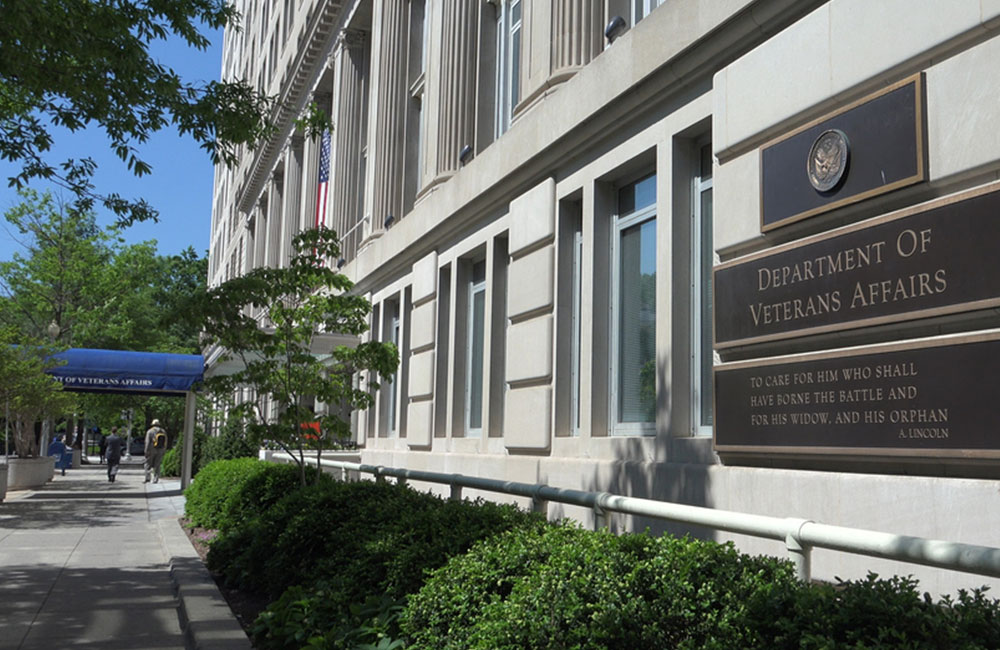Health IT Leads Talk AI Adoption Amid Challenges
Officials say the technology is poised to transform health care with the right investment.

Emerging technologies are having an overwhelming impact on patient care and health service delivery. For many government and industry leaders, artificial intelligence is top of mind.
“I’ve never seen quicker and more thoughtful uptake of an emerging technology in the government than I am seeing right now with AI,” said Sanja Basaric, AI program lead at the Department of Health and Human Services, at the Sept. 21 Health IT Summit.
Basaric said that there is a “culture of experimentation” as federal offices test out the benefits of AI that align with their missions. “That is huge,” she added.
In the health care ecosystem, AI can help at the operational and clinical level at scale. “[AI] benefits everything from natural language processing and helping reduce clinician burnout, to computer vision for image recognition and reducing clinical errors,” Basaric said.
However, the technology is faced with several challenges as leaders explore the best ways to use it responsibly and safely and to protect patient data.
“It’s a challenge because I am not an expert in that area, so some risks I can imagine, and some I know I can’t. That’s why I think conversations … with lots of different viewpoints and expertise are important,” Josh Fessel, senior clinical advisor at the National Center for Advancing Translational Sciences at the National Institutes of Health, said at the summit.
Additional challenges include the adoption of AI and the amount of experimentation that will take place. “How do you look at what is valuable and, again, take one or two of those and say, ‘This is my standard?’ And tailor it to 136 health care systems across the country,” said Ian Komorowski, acting chief consultant in the Office of the Deputy Under Secretary of Health at the Department of Veteran Affairs.
Consequently, as agencies invest in emerging technology, funding issues are an ongoing battle. Basaric said there needs to be a “shift in culture” in government for AI to reach its full potential throughout health care.
“Previously, we’ve had a really risk-averse culture in government and I think a lot of times, folks have had to prove ROI on a use case or on a project. And, you know, that it is difficult to do, especially with AI,” Basaric said. “I want to get us to a point where we’re talking more about a return on learning. Have we actually learned something from this, versus the actual bottom-line budgets?”
At HHS, Basaric said the agency is coupling AI instead of looking it at it separately. The agency, she noted, has included AI into its overall infrastructure.
“For it to be a transformational tool, it has to be embedded into actual infrastructure, actual agency operations,” she said.
As the risk of cybersecurity threats increase across the health care ecosystem, experts are concerned that the emerging technology will increase those threats even more.
“We’ve had malware, we’ve had disinformation, we’ve had doctored images for a long time, AI is going to accelerate some of those harms. But it’s also going to give us the tools to beat them quicker and faster,” Basaric said.
While challenges exist, the panelists said the good outweighs the bad. They also said that humans must stay in the loop.
“We’re talking about human lives and safety and the rights of Americans. We cannot get that wrong. There has to be a human that makes the final decisions for those important, impactful AI situations,” Basaric said.
This is a carousel with manually rotating slides. Use Next and Previous buttons to navigate or jump to a slide with the slide dots
-

White House Science Chief: US-Driven AI Sets Global Standards
Michael Kratsios outlined how American AI technology on the global stage will help standardize the tech and counter China’s influence.
5m read -

Modernizing Critical Infrastructure in the Face of Global Threats
Officials are expanding the latest strategies in boosting defense infrastructure, including securing satellite communications, upgrading enterprise-wide technology, optimizing data management.
20m watch -

Trump AI Orders Call for Speed in Building Infrastructure
The directives call for expanding AI infrastructure, streamlining federal permitting and promoting AI exports.
4m read -

DOD Accelerates Software Modernization with Agile DevSecOps Push
The Pentagon's software implementation plan tackles cultural hurdles and integrates security early to deliver critical capabilities faster.
6m read -

White House Unveils AI Action Plan to Secure Global Dominance
The strategy outlines steps to accelerate private sector innovation, build critical infrastructure and advance U.S. leadership in AI policy and security.
3m read -

VA's Platform One Powers Rapid Innovation to Bolster Digital Services
VA's Platform One accelerates software development timelines from weeks to hours, ultimately enhancing digital services for veterans.
5m read -

Opinion: Original Intelligence Is the Missing Piece for AI Transformation
Limitations of AI agents and development drive growing needs for workforce development and "original intelligence."
3m read -

Pentagon's $200M AI Contracts Signal Broader Effort to Transform Talent
The Army is leveraging Silicon Valley, reservist programs and new hiring strategies to integrate critical digital skills in its ranks.
5m read -

AI Foundations Driving Government Efficiency
Federal agencies are modernizing systems, managing risk and building trust to scale responsible AI and drive government efficiency.
43m watch -

Agencies Tackle Infrastructure Challenges to Drive AI Adoption
Federal agencies are rethinking data strategies and IT modernization to drive mission impact and operational efficiency as new presidential directives guide next steps.
5m read Partner Content -

Generative AI Demands Federal Workforce Readiness, Officials Say
NASA and DOI outline new generative AI use cases and stress that successful AI adoption depends on strong change management.
6m read -

The Next AI Wave Requires Stronger Cyber Defenses, Data Management
IT officials warn of new vulnerabilities posed by AI as agencies continue to leverage the tech to boost operational efficiency.
5m read




